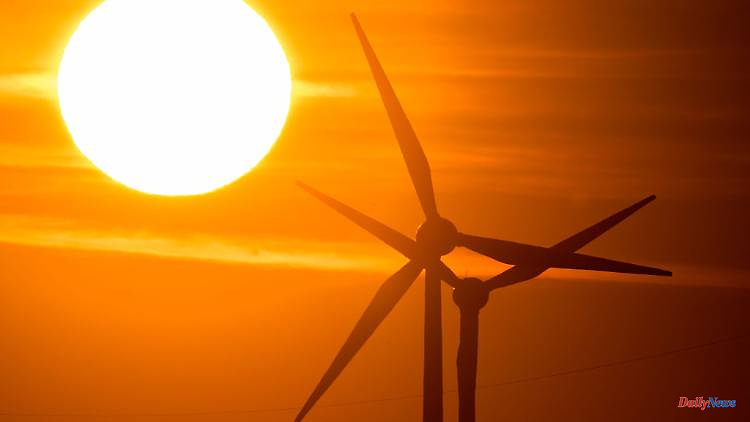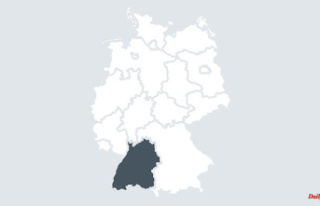Green electricity from wind should drastically reduce Germany's dependence on gas and oil imports and help ensure stable energy prices. In addition, the construction of new wind turbines should be accelerated. But Mecklenburg-Western Pomerania is lagging behind in terms of area designation.
Schwerin (dpa / mv) - Unlike Schleswig-Holstein, Mecklenburg-Western Pomerania does not want to centralize the planning for wind power expansion. Even if three of the four regional planning associations have not yet designated any new areas for wind farms, the responsibility should remain there, said Economics Minister Reinhard Meyer (SPD) on Thursday in the state parliament in Schwerin. But he urged more speed. "We can't afford another ten years," emphasized Meyer, referring to Germany's efforts to massively ramp up green electricity production in order to become independent of energy imports from Russia, for example.
In the debate, Green MP Hannes Damm referred to the procedure in neighboring Schleswig-Holstein. There, the state took the planning into its own hands and within four years reached the area target of 2 percent. "At the current speed, we will not achieve the goals we have set," said Damm. The lack of clear leadership across the country has also contributed to the delays so far.
Since 2011 there has been a struggle in the regions of Mecklenburg-Western Pomerania to designate new areas. The Rostock Planning Association was the first to make area proposals for new wind turbines last year. According to federal specifications, 1.4 percent of the state area in Mecklenburg-Western Pomerania should be designated for wind farms by 2027, and 2.1 percent by 2032. It is currently 0.6 percent.
While the AfD reiterated its fundamental rejection of wind power generation, spokesmen from other parliamentary groups called for increasing the acceptance of wind turbines by directly benefiting the affected communities and citizens. People's concerns must be taken seriously. Meyer referred to the existing Participation Act and assured that in Mecklenburg-Western Pomerania the minimum distance between wind turbines and settlements would be 1000 meters.
Despite clear signals from the federal government for an accelerated expansion of the use of wind power, the construction of new wind turbines in Mecklenburg-Western Pomerania is progressing slowly. According to surveys by Deutsche WindGuard, eight new wind turbines were connected to the grid in the north-east in the first half of 2022. In the first six months from 2010 to 2018, there were an average of 32, four times as many. The issuing of building permits is also lagging far behind previous figures. According to the information, only 16 new plants were approved in the north-east, a third of previous years.
In another debate in the morning, the Greens denounced the disadvantageous assessment of electricity network charges for consumers in the north and called for rapid changes. According to the Green MP Hannes Damm, the network charges for household customers in Mecklenburg-Western Pomerania are around 1 cent above the national average of 7.5 cents per kilowatt hour. "For a household in MV with average consumption, this means an additional burden of up to 100 euros a year," said Damm. Such inequalities are anything but fair and also create false incentives for business to settle in regions with low grid fees and low generation capacities.
Although the government factions of the SPD and the left are calling for a nationwide uniform fee for distribution networks, the Greens' motion did not find a majority. "We've been on the road for a long time," said Economics Minister Reinhard Meyer (SPD). According to him, an agreement has so far failed due to resistance from southern and western countries, where lower fees apply. Therefore, a new regulation can only be enforced with the help of the federal government.
"The regional distribution grids and their costs are a major problem of the energy transition in Mecklenburg-Western Pomerania. We cannot explain to people that we are making a major contribution to the energy transition by expanding renewable energies, but that we have the highest electricity costs. That's a fundamental one acceptance problem," said Meyer. The topic will therefore also play a role at the conference of ministers next week.












